

Crowdfunding: The Complete Beginner’s Guide
30th December 2022
Crowdfunding is one of the many popular ways to raise funds for a business. In this complete guide, we’ll flesh out what you need to know – the benefits, drawbacks, and everything in between – that any startup founder needs to know before crowdfunding.
What is Crowdfunding?
As the term implies, ‘crowdfunding’ is when a founder harnesses the power of the crowd (i.e. their network) by motivating them to invest in their business. It is the second most popular way for startups and early-stage companies to raise finance, mainly because it’s a fantastic opportunity for investable entrepreneurs to leverage their personal networks and existing client base to make investing in their business easier.
Crowdfunding isn’t something that only startups and early-stage businesses do. As the crowdfunding model has grown in popularity, more and more companies are using it to raise investment across all stages of their fundraising journey.
You might also hear crowdfunding referred to as ‘crowd financing’ or ‘crowd-sourced capital’.
The UK is the third-largest crowdfunding market in the world, behind China and the United States.
Related: Startup Fundraising | How Does Crowdfunding Work?
How does Crowdfunding work?
Crowdfunding is when a group of individuals invest, lend, or contribute small amounts of money to your business or project with the aim of eventually receiving a financial gain, gift, or some other pre-determined form of reward.
Each Crowdfunder will typically invest only a nominal sum, usually between a few hundred and a few thousand pounds. However, if the crowdfunding campaign is successful, that can quickly amount to a considerable injection of capital. Smaller investors are drawn to crowdfunding because they’ll have less to lose if the business doesn’t work and a tempting amount to gain when it does. Also, because crowdfunding is a relatively straightforward process that usually takes place through a crowdfunding website, it’s easier for unsophisticated investors to get involved because it makes closing the deal a far less complicated process.
What do Crowdfunding investors look for?
Even though the founder isn’t walking into a room and physically pitching to investors one-to-one, the rules of the perfect pitch still apply. Your prospective crowdfunding investor will want to know what your business is, why it was created, and why they should care enough to inject their hard-earned finances into it. Quite often, they’ll also want to see:
- Evidence it’s an idea with the potential for future growth and development.
- It’s an idea that targets a sector or industry they have a personal interest in.
- It’s an idea that will appeal to as large an audience as possible because it solves a universal pain point.
Types of Crowdfunding
The main types of crowdfunding are:
Investment-based crowdfunding
Investment-based crowdfunding (sometimes called ‘Equity crowdfunding’) is when the founder offers a stake in their company in return for each person’s investment. The stake is usually in the form of company shares.
Investment-based crowdfunding is the most common type of crowdfunding that startups and early-stage businesses look for, especially if they are growth-focused with the potential to make their investors huge returns.
There are several investment-based crowdfunding platforms in the UK. These platforms (and similar crowdfunding sites) operate by managing much of the technical and legal sides of the deal in return for a small commission on the overall amount raised.
The largest investment-based crowdfunding platforms, like Crowdcube and Seedrs, are also so well established that investors will often feel more confident in investing larger sums of money into the projects they are hosting. That is because sites like Crowdcube and Seedrs closely analyse each company before allowing it onto their platform, checking that it has a credible plan, an investable business case, and a strong community that is already likely to invest in them.
All the major crowdfunding platforms will want evidence that some initial investment has already been committed before they’ll allow a company onto their site. So, if you’re an investable entrepreneur who wants to take the crowdfunding route, be prepared; you might still need to have some angel investment in your corner before a crowdfunding platform lets you in.
Peer-to-Peer crowdfunding
Peer-to-Peer crowdfunding is when a platform lends money to an individual or business at a set interest rate. It’s sometimes called Debt crowdfunding, P2P Lending, or Loan-based crowdfunding, and it’s essentially very similar to borrowing money from a bank. As an option, it works best for companies that already have a proven track record of revenue. Therefore, peer-to-peer crowdfunding won’t appeal to or even be relevant to most startup and early-stage founders seeking investment.
Reward-based crowdfunding
Reward-based crowdfunding is where the whole crowdfunding concept began when members of the creative industries (artists, musicians, film directors, writers) raised money for their projects by offering investors a reward for crowdfunding them. The reward was usually a free pre-release copy of the finished product or an exclusive gift like a limited-edition print or signed bookmark. Many authors and filmmakers are still using reward-based crowdfunding today.
For an investable entrepreneur, reward-based crowdfunding can be tricky. On the one hand, it can be great for a startup that has the first version of a physical product they want to launch and raises their crowdfunding on the understanding that they’ll only launch the product if they receive enough pre-orders to hit their campaign target.
On the other hand, it can be difficult for a startup to accurately estimate the number of rewards they’ll need to fulfil. Underestimating the number of rewards could lead to a reward shortage and a lot of unhappy investors, and overestimating the number of rewards could lead to an excess of rewards and a lot of wasted money.
When reward-based crowdfunding is handled correctly, it can be a terrific success. Our client, Crown Cruiser, is a great example.
Donation crowdfunding
Donation crowdfunding is a very niche type of crowdfunding that is generally used by charities or organisations raising money for social awareness projects. It’s a way to bring their community together online so they can donate to their project more easily, and it usually takes place through the charity’s/organisation’s own website. However, there are instances when crowdfunding platforms have been used to crowdfund donations for personal or charitable causes.
Crowdfunding advantages and disadvantages
The eight major advantages of crowdfunding are:
- It can be a quick way to raise investment without incurring any upfront fees.
- Because investors own a small part of your company, it can massively boost brand loyalty.
- It’s a great way to market-test your idea and get your target audience’s feedback and an extremely low-cost way to spread the word about what you’re doing without having to spend a scary amount of money on marketing.
- Most likely, your investors will use their own networks to promote your idea.
- Crowdfunding through an online platform can be a terrific marketing tool and a valuable way of promoting your business, product, or service before it is launched.
- Crowdfunding is often the most attractive option for a smaller investor because it offers higher returns with only moderate risk.
- It can be an easier way to raise finance for unconventional ideas.
- It’s an attractive alternative finance option for startups that haven’t been able to secure traditional funding or are struggling to get a bank loan.
The eight major disadvantages of crowdfunding are:
- It can be difficult for a startup or early-stage business to meet a crowdfunding platform’s criteria. Not every company that applies to a crowdfunding platform gets onto it.
- Getting onto the crowdfunding platform is only the beginning; a business must still build up audience interest in the idea before its campaign launches. This could mean devoting significant resources to the project with no guarantee the campaign will succeed.
- If the funding target isn’t reached, all the money pledged will usually be returned to the investor. The business receives nothing.
- If the crowdfunding campaign fails, it’s a very public failure that carries the added risk of damaging the reputation of your business and possibly making it harder to raise alternative investments.
- If a patent or copyright doesn’t protect the idea, the concept could be stolen by someone who sees it on the crowdfunding site.
- Inaccurately estimating the returns or rewards may result in giving away too much of the business to investors.
- It’s easy to receive ‘false positives’. Just because a campaign takes off quickly doesn’t mean momentum will be maintained. If interest wanes and the campaign fails, it can leave the founders demoralised and feeling like it’s their product at fault. That may not be the case at all. It’s equally as likely their product or service is a great idea that was badly marketed or promoted or has a flaw they’d never considered that only needs correcting instead of throwing it out the window completely.
- Crowdfunding campaigns are conducted within very short spaces of time, usually within thirty to sixty days, which can place a lot of unsustainable pressure to succeed on the business. Plus, if the campaign is successful, it puts a lot of pressure on the company to deliver the promised rewards before its investors become impatient.
Crowdfunding success stories
The craft brewery BrewDog has raised millions of pounds, achieved Unicorn status, and built an intensely loyal fan base through multiple crowdfunding rounds.
Challenger bank Monzo broke crowdfunding records when they raised £1m in an astonishing 96 seconds.
FinTech company Nutmeg raised £3.7m in return for just 1.5% equity in their seventh round of funding via the crowdfunding site Crowdcube.
Is crowdfunding regulated?
The UK Crowdfunding Association (UKCFA) is a self-regulatory trade body set up in 2013, just as the crowdfunding market was starting to develop. It has a code of conduct that all its members are expected to adhere to, focused mainly on protecting investors.
In April 2014, the Financial Conduct Authority (FCA) started to regulate some types of crowdfunding in the UK: Investment-based crowdfunding and peer-to-peer crowdfunding. The FCA doesn’t regulate reward-based or donation crowdfunding, although it does regulate some of the payment services connected to those types of crowdfunding.
What are the best crowdfunding platforms?
There are many different types of crowdfunding platforms. Some crowdfunding platforms target a specific type of investor, some are designed to promote a particular kind of project, some offer more security than others, and some will actively provide support and advice to fundraisers, whereas others will be completely hands-off.
For all those reasons, it’s essential for an investable entrepreneur to do their research and ask themselves:
- Which crowdfunding model does the platform offer?
- What happens if the crowdfunding target isn’t met?
- Does the platform specialise in a particular type of project?
- What level of support does the platform give its fundraisers?
- What are the platform’s fees?
The UK’s top crowdfunding sites include:
Crowdcube
Crowdcube allows businesses at every stage of growth to pitch for global crowdfunding. In exchange for their investment, backers receive a stake in the company in the form of equity. So far, over $1bn has been invested with Crowdcube.
Seedrs
Seedrs connects startups to seed capital from venture capitalists, angel investors, and others. It ranks alongside Crowdcube as the largest crowdfunding site in the UK.
Kickstarter
Kickstarter is one of the biggest rewards-based crowdfunding sites in the world. It follows an ‘all-or-nothing’ model, which means the fundraiser must reach their funding goal to receive their investment.
Syndicate Room
Syndicate Room is an equity-based crowdfunding site that helps startups raise investment from venture capitalists and angels. It works by tying several different crowdfunding campaigns together and then offering the diversified bundle to investors so their investment will have a better chance of success.
Indiegogo
Indiegogo is a rewards-based crowdfunding site that hosts creative and entrepreneurial projects, cause-based campaigns, and other types of fundraisers. It offers two crowdfunding options: Flexible Funding, wherein the business keeps all the money raised even if its funding target hasn’t been reached, and Fixed Funding, wherein all the money is returned to the backers if the funding target isn’t met.
Funding Circle
Funding Circle is a peer-to-peer crowdfunding site that helps small UK-based businesses secure loans at affordable rates from various sources. It has raised more than £6.2bn for UK small businesses since its inception in 2010.
Crowdfunder
Crowdfunder is a rewards-based crowdfunding site that helps connect innovative entrepreneurs with like-minded investors. Its USP is the Extra Funding feature, which connects qualifying campaigns to businesses that have already set funds aside for similar causes and projects.
How to launch a successful crowdfunding campaign
Set yourself a realistic investment goal
Make your goal achievable and ensure that the investment you raise will cover not just your campaign goal but also the platform fees and other extra expenses. Remember, it’s better to set a target of £10k and see it exceeded than set a target of £100k that never gets reached.
Test your concept beforehand
Reach out to friends, family, colleagues, and others in your network. Ask them for feedback and encourage them to invest on the very first day of your campaign. The more early investment you get, the easier it will be to encourage other potential investors to follow.
Marketing is essential to success
Don’t fall into the trap of thinking that, now you’ve found a crowdfunding site to host your project, all you’ve got to do is sit back and watch the investment roll in. That’s not the work it works. You’ve still got to market your campaign and create a buzz around what you’re doing any way you can: networking, press, social media, podcasts, local radio, exhibitions, etc. Your aim should be to have as many investors queued up as possible, eagerly waiting to fund your project on day one of its launch.
Do your homework
Many crowdfunding platforms keep finished campaigns online, regardless of their success or failure. Research projects similar to yours and use what you learn to fine-tune your offering.
Communicate clearly with your investors (and potential investors)
Make sure your investors understand what your project is, what you aim to achieve, how much investment you’ll need to make it happen, and when they’ll see the finished product/result. Answer every question an investor asks you in a public forum if possible because if that investor’s thinking it, other investors will undoubtedly think it too. Keep them updated with progress, and be honest if some changes or deadlines won’t be met.
Want to find out more about becoming an Investable Entrepreneur? Download a free copy of Robot Mascot COO James Church’s bestselling book.
UP NEXT:
Learn how to convince investors
Investable Entrepreneur takes you through our winning methodology – the process we use to increase our client’s chances of raising investment by more than 30x.
“This book will help you translate your entrepreneurial vision into something investors can get behind.”
Daniel Priestley, CEO and founder, Dent Global and four times best-selling business author
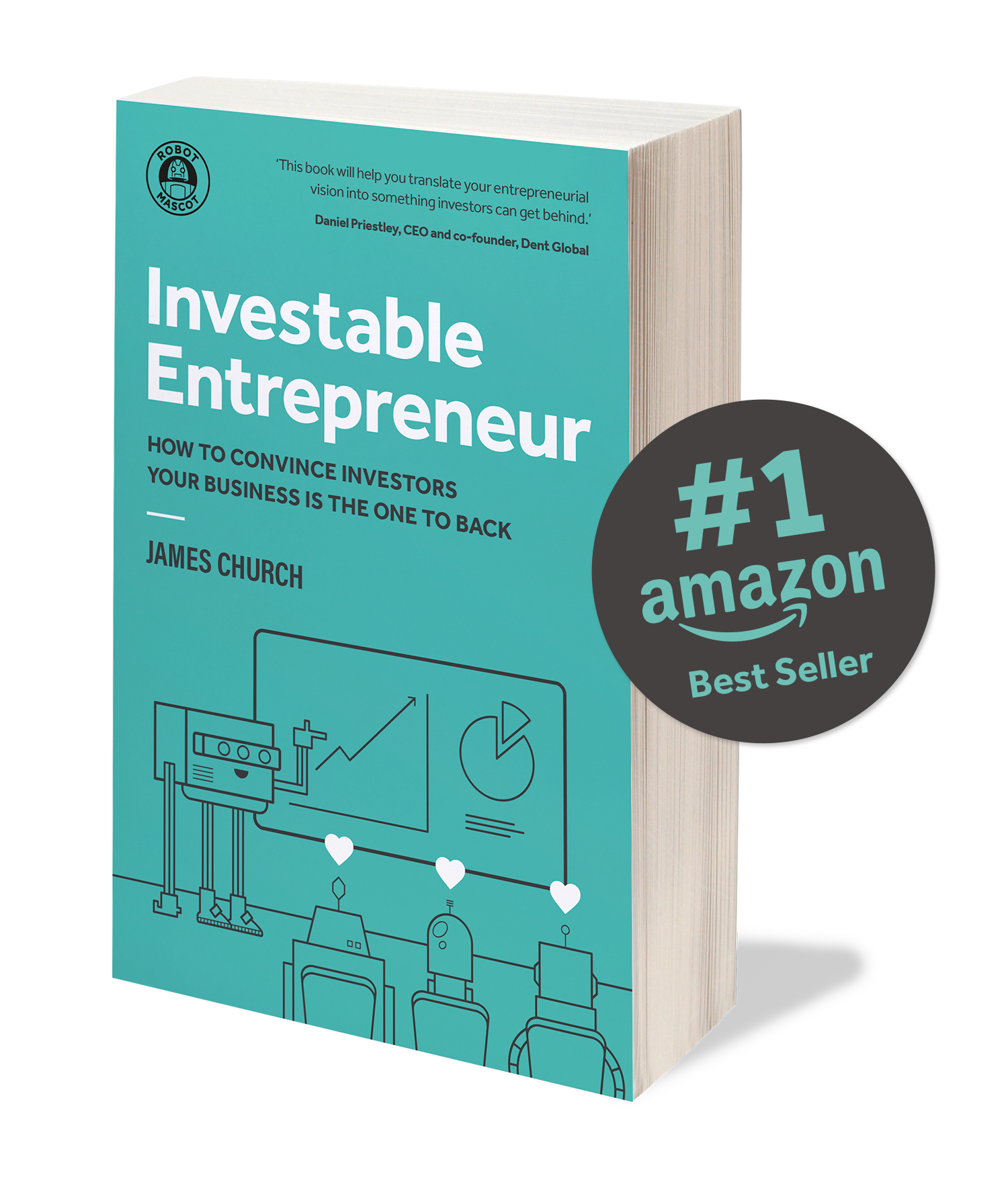
Keep up to date with what we’re up to via email

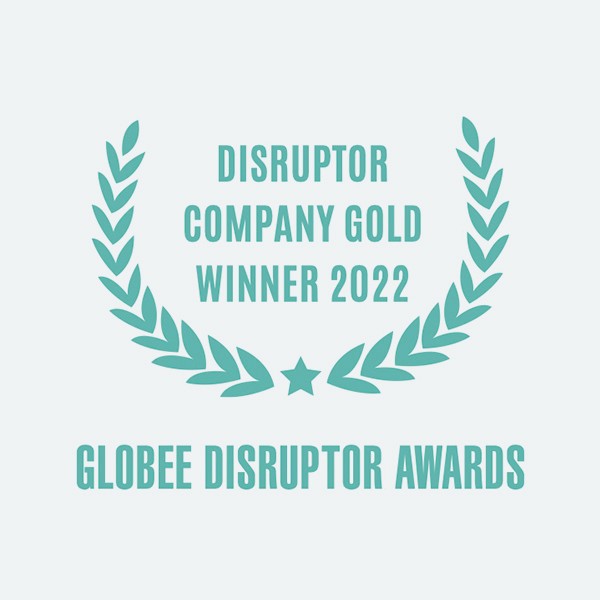
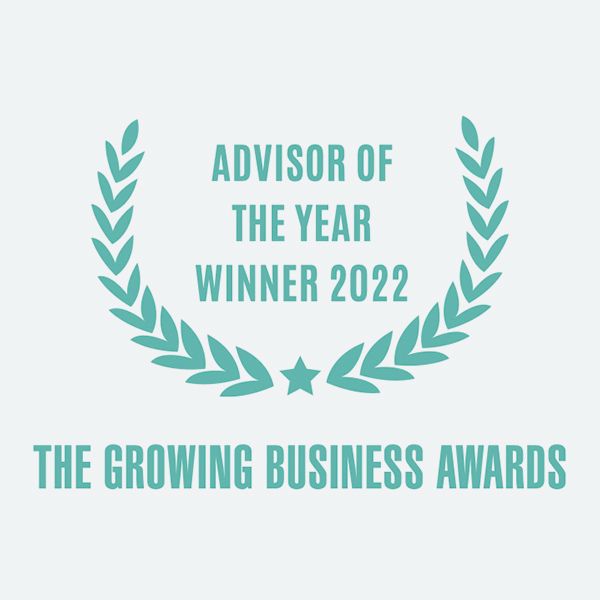
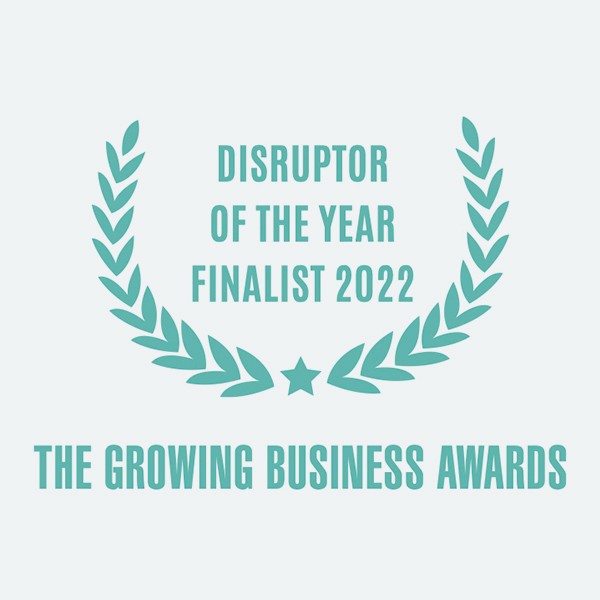
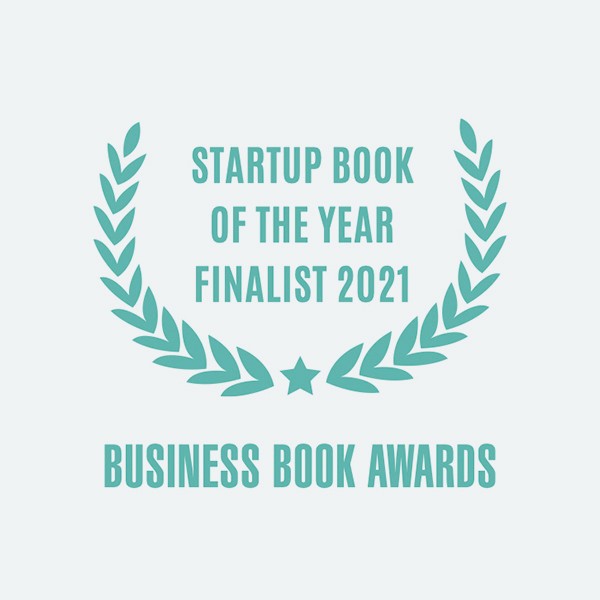

Copyright ©Robot Mascot Ltd. All rights reserved.







